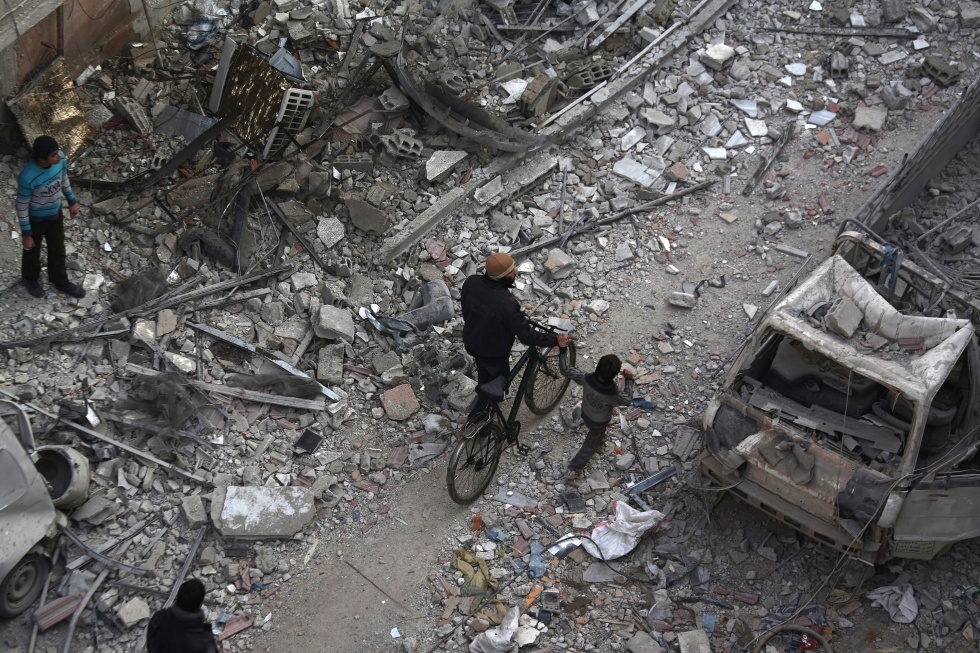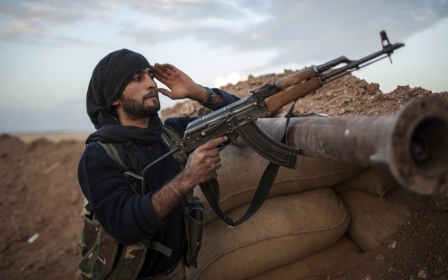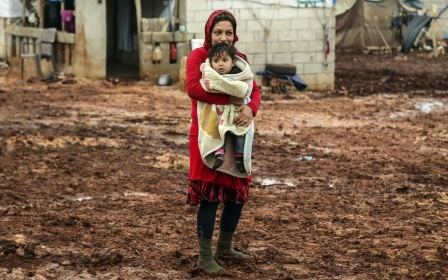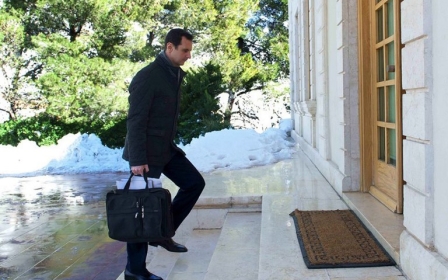Assad strikes near Damascus kill 42 civilians, including 6 children

Airstrikes carries out by the government of President Bashar al-Assad on a rebel-held village east of Damascus on Friday killed 42 civilians, including six children, a monitoring group said, denouncing what it called a massacre.
"The number of people killed in airstrikes on the village of Hammuriyeh has risen to 42, including six children," said the Syrian Observatory for Human Rights.
Earlier, the Britain-based group had given a toll of 32 dead and denounced what it called a "massacre".
According to the Local Coordination Committees (LCC), a grassroots network of opponents, one of the strikes hit a square in Hammuriyeh where people had gathered for the weekly Muslim Friday prayer.
Syria's airforce began launching strikes against opposition-held areas in the summer of 2012, with rights groups blasting the Assad government for attacks they say fail to discriminate between civilian and military targets.
The rebel-held Eastern Ghouta area, located east of Damascus, has been under a suffocating army siege for more than a year, leaving tens of thousands of civilians short of food and medical supplies.
Pro-Assad forces kill 92 across Syria
At least 92 people were killed Friday by government military operations across Syria, according to a written statement made by the Syrian Network for Human Rights (SNHR).
The Assad government attacked cities controlled by opposition forces, said the SNHR, which is based in London.
There were 61 people killed in the countryside of Damascus, five in Idlib, four in Homs and Hama respectively, three in Latakia and two in Quneitra.
Government air forces intensively bombarded the areas of Douma, al-Homayra, Darayya and Jobar in the Damascus area.
Intense clashes took place between opposition and pro-Assad forces near the Abu Al-Dohur airbase, which is controlled by the Syrian government.
In addition, the opposition repelled attacks by pro-Assad forces, which attempted to infiltrate Azizah village in Aleppo, the Syrian Network said.
The official Syrian news agency, SANA, announced that the Syrian army had killed a large number of opposition troops in operations in the countryside of Damascus and in other areas near Idlib.
Meanwhile, two girls have been killed Thursday in a Syrian government barrel bomb attack in the village of Haziran in northern Syria.
According to the Anadolu Agency’s correspondent, a Syrian army helicopter dropped two barrel bombs on the village in the Idlib countryside. Only one of the barrel bombs exploded on a house which was destroyed.
Civil volunteers dug up the victims’ shredded corpses from the collapsed home.
Islamic Front offensive against IS militants
Meanwhile, the Islamic Front opposition group killed tens of Islamic State (IS) militants in attacks in the northern countryside of Aleppo on Thursday, the group said.
The militants were allegedly killed in attacks on IS's bases in Suran, Duwaybiq, Ahtimlat and al-Zaheriya villages, according to Hasan Hanzal, a field commander of the North Storm Brigade of the al-Sham Front.
An anonymous source at the Dabiq field hospital confirmed the death of eight people and injury of 12 IS militants.
Najm Abo Ibrahim, another field commander from the same brigade, called on civilians in the villages which are under IS control to stay away from IS bases for their own safety.
The attacks came after IS had previously bombarded Mare’, Suran and Talalin villages, also located in Aleppo’s countryside, leaving four civilians, including one child, dead.
Aleppo’s northern countryside has witnessed constant clashes between IS and Syrian armed opposition groups for almost one year as IS attempts to seize control of the strategic town of Azaz near the Turkish border.
Syrian opposition forces, including the Islamic Front, agreed to unite under the name al-Sham Front on 25 October, 2014.
New MEE newsletter: Jerusalem Dispatch
Sign up to get the latest insights and analysis on Israel-Palestine, alongside Turkey Unpacked and other MEE newsletters
Middle East Eye delivers independent and unrivalled coverage and analysis of the Middle East, North Africa and beyond. To learn more about republishing this content and the associated fees, please fill out this form. More about MEE can be found here.




